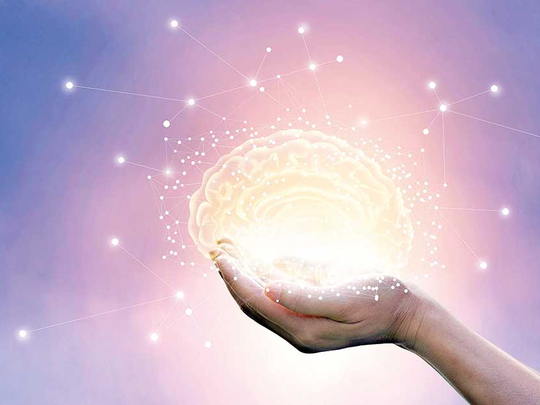
To compete with Artificial Intelligence (AI), humans will need to get smarter. And to do that, we’ll have no choice but to use nano and biotechnologies, information technology (IT) and cognitive sciences to radically hike our brain capacities. We’ll either be able to increase our intelligence through pre-birth interventions or by acting directly on the cognitive machine that is the brain. Schools will thus become trans-humanist, meaning they’ll seeking to boost human capabilities. And the idea of modifying students’ brains will become normal.
Faced with this civilisational change, the state must become an intelligence manager and assure the harmonious cohabitation of silicon and biological brains. My contention is this: that intelligence will become the key to all powers, and politics itself will focus on intelligence management. Those are among the ideas for democratising intelligence that I put forth in my book La Guerre des intelligences (War of Intelligences).
Recently, both French essayist Édouard Tétreau writing in Le Figaro and Laetitia Strauch-Bonart in the weekly Le Point have made humanist and religious counter-arguments. Like many elite intellectuals, they favour keeping intellectual inequalities. They claim that intelligence is not crucial and that our humanity is not reduced to just cognitive capabilities. But behind this veneer of humanism and benevolence lurks a kind of class selfishness.
Elites are currently living the most exciting time in human history. For innovators and intellectuals, this is a golden age. The problem is that the party is reserved for just a small minority — people with high IQ levels. Those with inferior intellectual abilities are sidelined.
Elites launched the knowledge and big data society and the industrialisation of AI, without worrying about democratising biological intelligence. They haven’t given any thought yet to the future of less gifted people. What’s more, they have made intelligence measurement a taboo, even though IQ inequalities are a huge and growing contributor to social and economic inequalities.
One extra IQ point has an increasing impact on success in the broader sense. In a knowledge society, gaps in cognitive abilities entail explosive differences in earnings, ability to understand the world, influence and in social status. The IQ taboo, in that sense, becomes a weapon wielded by the “hyperclass” to maintain its power. This taboo expresses the hidden desire of the intellectual elites to protect their monopoly on intelligence —what sets them apart from the masses. Simply put, the elites panic at the idea that brain technologies could soon destroy their intellectual superiority.
Which is why we need to act urgently and persuade them to become less selfish. The scientist Sergey Brin confessed at the Davos summit in 2017 that AI is advancing much faster than all previous forecasts. And as AI industrialisation moves ahead, it will turn social and political organisation on its head. “Neuro-conservatives” like Tétreau and Strauch-Bonarte don’t realise that their discourse is slowing down political mobilisation; it’s preventing us from regulating the “war of intelligences.”
The discrepancy between IT industrialisation, currently moving at an astounding rate, and the democratisation of biological intelligence that has not even begun, has become a threat to democracy. As such, re-founding education and training is a matter of absolute political urgency. We need to rebalance investments and invest in teaching research at least as much as the US digital giants (Google, Apple, Facebook and Amazon) and their Chinese counterparts (Alibaba, Baidu, Tencent and Xiaomi) invest in educating silicon brains.
Intellectual elites have let entire sections of the population become marginalised. Given how little time there is to save those left behind by the digital bus, we need to start by acknowledging IQ disparities. This isn’t to stigmatise, but to pilot our brains upwards and fight inequalities. Sitting by would be like supervising a diabetic without measuring their blood glucose levels.
What is needed is the right to high-quality, lifelong training, not payments for people left stranded by technological advances. We don’t need a universal income; we need universal brain development. In the 21st century, only cognitive improvements, not taxation, will reduce socio-economic gaps, so expect the big solutions to come from a neurobiologist, not an economist like Thomas Piketty.
If schools do not democratise biological intelligence fast by using the full potential of brain sciences, we should expect some kind of intellectual apartheid, for starters, followed by a big crisis. And the neuro-conservatives who refuse, in the name of humanist kindness, to use those sciences to reduce intellectual differences are just leading us towards that critical situation.
It’s also true, of course, that the brain revolution, if it does take place, will sweep such intellectual elites away. Just as France’s bourgeois revolution, in 1789, eliminated noble privileges, the neuro-revolution will mark the end of privilege based on intelligence.
–Worldcrunch/New York Times News Service












